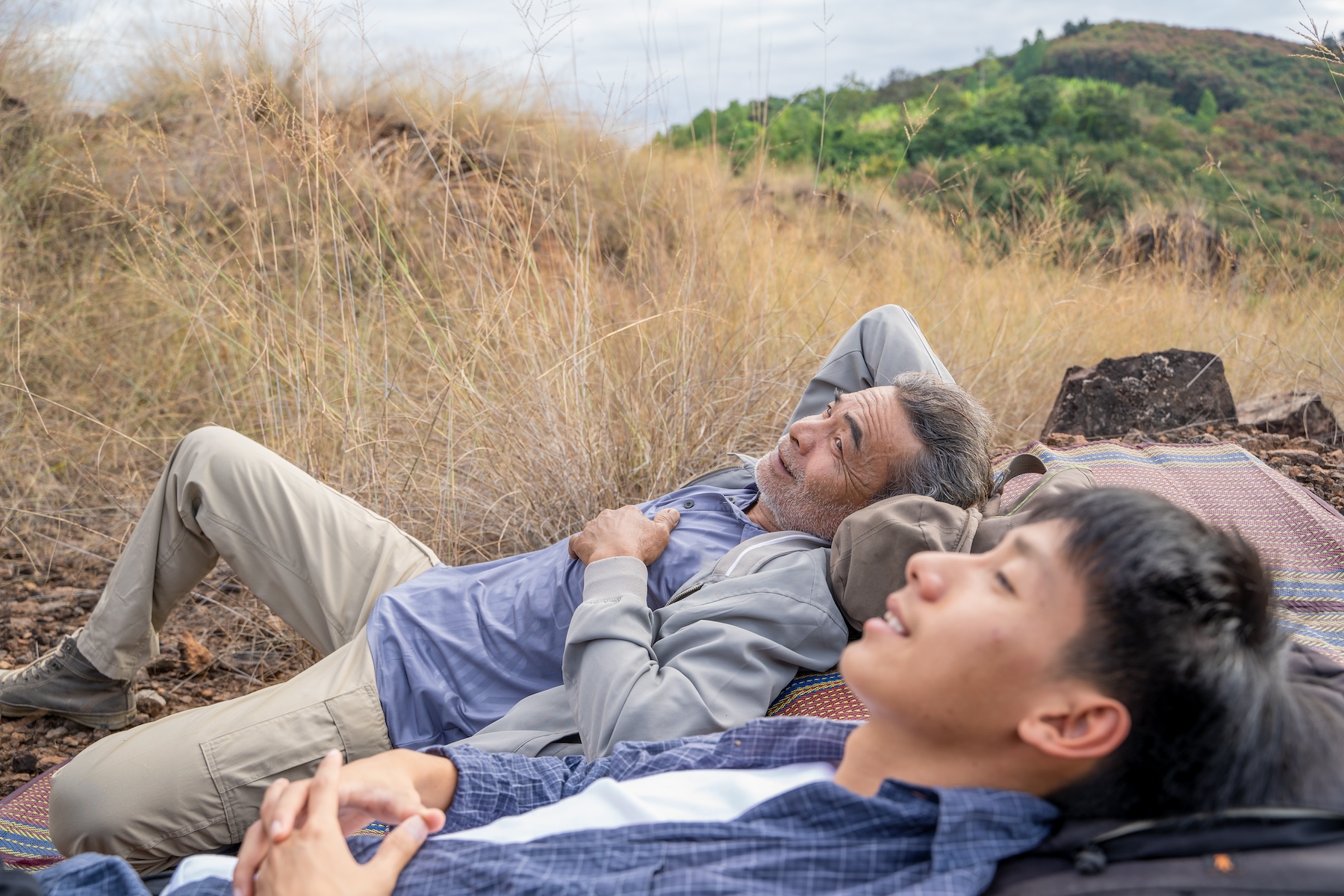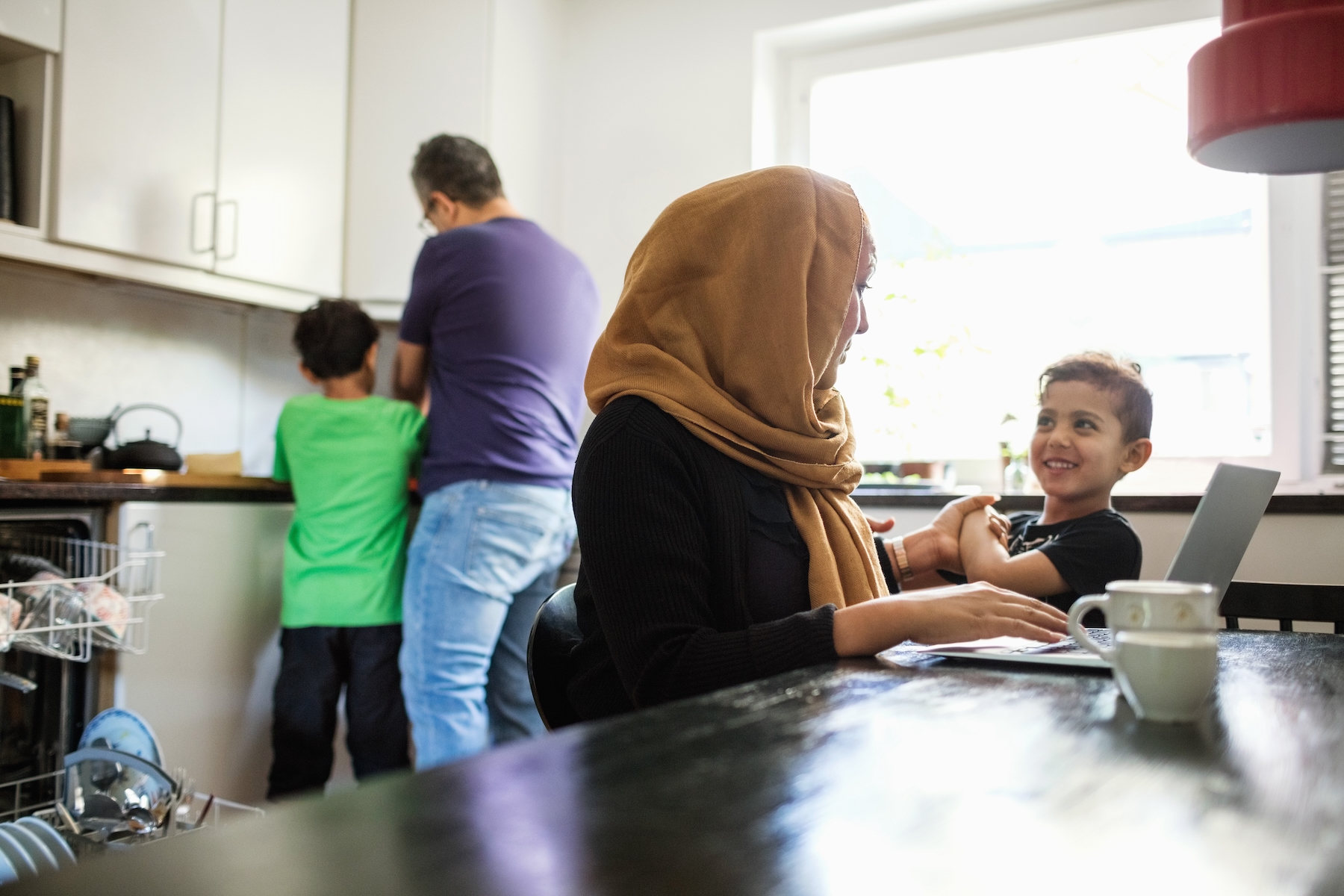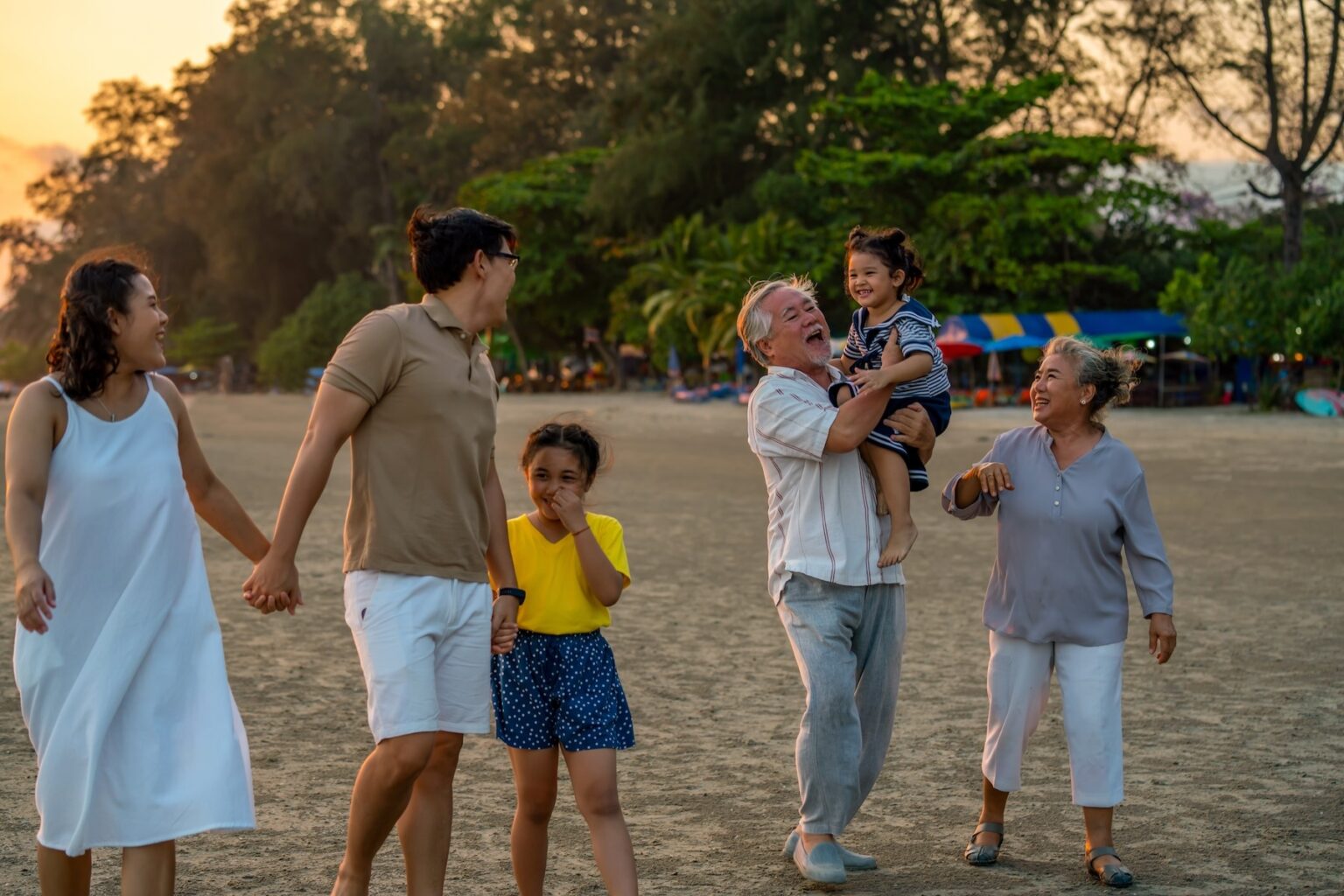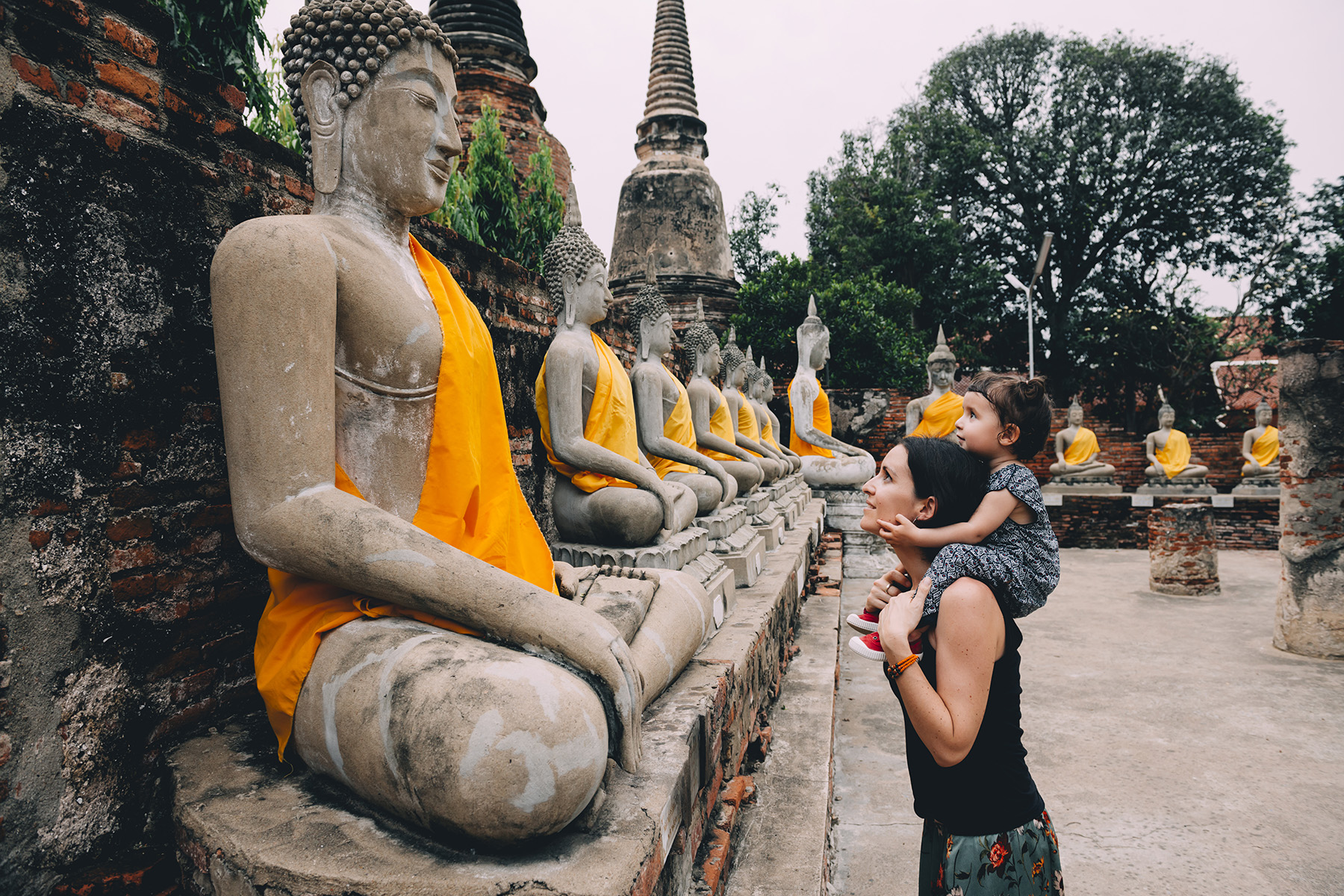There are many options for long-stay visas in Thailand. However, if you have family in the country or are married to a Thai citizen, a dependent or spouse visa might be the way to go. Each visa type has its pros and cons, and application requirements vary. But don’t let that put you off; family and marriage visas are definitely worthwhile if you want to live in Thailand long-term.
Keep reading for more on this topic, including:
- Marriage and family visas in Thailand
- Do you need a visa to join family in Thailand?
- Visas for family members of Thai citizens
- Visas for family members of non-Thai citizens
- Short-term visits to family members in Thailand
- Marriage and family visas to join refugees or asylum seekers in Thailand
- When family members arrive in Thailand
- In the event of divorce or death of a family member in Thailand
- Family or marriage visa complaints and appeals in Thailand
- Useful resources
Marriage and family visas in Thailand
Family and marriage visas are available for those who are married or related to legal residents of Thailand and Thai citizens. These visas, grouped under the Non-Immigrant O category, allow you to stay in the country with your spouse or family long-term.

When you apply for a visa, the Thai Embassy or Consulate in the country you’re currently resident in will issue it. The application process depends on your country of residence. Some countries can use the E-Visa website (managed by the Ministry of Foreign Affairs), so you don’t need to visit an Embassy in person.
Visa or extension of stay
Visas can only be issued by embassies or consulates outside of Thailand. However, if you have another visa and are currently in Thailand, you should be able to extend your stay or change your immigration status while remaining in the country.
You can find out if you can change your status by visiting your local immigration office. They will be able to tell you if this is possible. If you can’t change your status in Thailand, you must travel to a Thai Embassy or Consulate in a neighboring country. Here, you can apply for a new visa.
Required documents for Thai marriage or family visas
Always check the exact requirements for any visa or extension of stay at your local office because these can change depending on where you are. Some Embassies or immigration offices will have slightly or dramatically different document requirements.
This is even true when applying for a visa outside Thailand through the Thai E-Visa official website. Every visa information page urges applicants to “check the relevant embassy/consulate’s website for specifically required documents.”

If you’re not sure if your nationality qualifies you to apply online, use the eligibility checker towards the bottom of the home page to find out.
Do you need a visa to join family in Thailand?
If you are planning to live with family in Thailand long-term you will need a specific visa, all of which need to be renewed on a regular basis. However, many of these options will give you a path to permanent residency and, eventually, Thai citizenship.
Remember that if you are from a country with a bilateral agreement with Thailand or on the visa-exempt list, you should be able to visit visa-free for 15–90 days.
Visas for family members of Thai citizens
If you are the family member of a Thai citizen you can get a Non-O visa based on this relationship. These visas are open to three groups of people:
- People married to Thai citizens
- Parents or legal guardians of Thai children under the age of 20
- Children under the age of 20 of Thai parents
Who can apply?
You can get a marriage visa if you are legally married to your Thai husband or wife. In September 2024, Thailand officially signed the same-sex marriage bill into law, meaning LGBT+ spouses can now apply for this visa too.
If you are the legal parent of a Thai citizen under the age of 20, you can apply for a visa as their guardian. This applies to biological and adoptive parents. There is no age limit if the child can’t support themselves due to a mental or physical condition.

Additionally, if you are the child of a Thai citizen, you can get a visa as a dependent. You must live with your parents, be under 20, and be unmarried to apply. Again, if you are unable to support yourself due to a mental or physical condition, there’s no age limit.
Visa length
Family or marriage visas usually last for one year. You must visit your local immigration office in Thailand every year to extend it.
However, if you apply for your Non-O visa outside Thailand, it is only valid for 90 days after entering the country. You must then extend this at your local immigration office to get a full year.
Visa entitlements
The Thai citizen marriage and guardian Non-O visas allow you to work. However, your employer will still need to apply for a work permit. This means it is easier to get a job, as your employer only has to apply for your work permit. They can provide some documents required to get a work visa (Non-B). This visa is also a pathway to permanent residence or citizenship.
How to apply
Thailand’s marriage visa application process differs for men and women, though most steps are the same. You also need to provide different documentation for guardian and dependent visas.
If you are currently in Thailand, contact your local immigration office and ask for a list of requirements to change your visa to an extension based on your relationship with a Thai citizen. If you are outside Thailand, you should apply via your local Thai Embassy or Consulate.
Applying for a family or marriage visa at a Thailand Embassy
When you apply for a visa as the family member of a Thai citizen at a Thai Embassy you need the following documents:
- Your passport
- Your marriage certificate or your child’s birth certificate/adoption certificate
- Your spouse’s Thai ID card (marriage visa) or your child’s Thai ID card (guardian of a Thai citizen)
- Passport photos
- Proof of residence in the country where you are applying
- Financial proof of either an income of at least ฿40,000 per month or an account holding at least ฿400,000 (for a marriage visa with a Thai wife/foreign husband or guardian of a Thai citizen)
You should check with your local Thai Embassy for their exact requirements, as they may need other documents, too.

Processing times will also depend on the country you are applying from, but the Thai Consulate in Los Angeles, USA, says you should apply at least a month before you need the visa.
Once you get this visa, you can enter Thailand and begin applying for your one-year extension of stay.
Applying for a marriage or family visa extension of stay at immigration in Thailand
The processes are similar for extending a Non-O visa you got at an embassy or consulate and changing your visa status.
When you are applying for an extension in Thailand, you are likely to need the following documents, as well as those mentioned in the previous section:
- Proof that you have registered your marriage in Thailand if you married elsewhere (marriage visa)
- A letter from your country’s embassy in Thailand proving that you make ฿40,000 per month or 12-months proof of income (not required for a marriage visa with a foreign wife/Thai husband or as a dependent child of a Thai citizen)
- Your bank book up-to-date as of the application
- Your child’s house book (ทาเบียนบ้าน, tabien baan) and a letter from their school if they are of school age (guardian of a Thai child)
- Proof of your relationship, including photos or other documentation
- Residential details
You should contact your local immigration office to check their exact requirements.
Once you have submitted your application for the one-year extension you will have to wait around a month. During this time you may get a home visit from immigration officers to check where you live and to verify your relationship.
Visa costs
The cost of applying for a Non-O family or marriage visa at an embassy outside Thailand varies and is charged in that country’s currency. For example, in the US, it costs US$80 to apply at the Thai Consulate in Los Angeles.
It will cost you ฿1,900 to apply for an extension of stay at your local Thai immigration office. Immigration offices in Thailand generally only accept cash. You should check with your local embassy to see if they accept other payment methods.
Visas for family members of non-Thai citizens
If your non-Thai spouse or child is a legal resident of Thailand, you may be able to get a dependent/guardian visa based on that relationship. This is a good option if you can’t apply for any other long-term Thai visas.
Who can apply?
If your husband or wife is living in Thailand with either a work visa (Non-B), a retirement visa (Non-OA/Non-O), a volunteer visa (Non-O), or a student visa (Non-Ed), you can apply for a dependent visa based on this relationship. Alternatively, if your child is studying at a school that gives them an education visa (private or international schools only), you can apply for a visa as their guardian.

Spouses and children of long-term resident (LTR) visa and Smart visa holders can also apply for a visa through these programs.
As with the visas for Thai citizens, you must be legally married, and the government must recognize your marriage. You must be the child’s legal parent for guardian visas, either through birth or adoption.
Your family member must already have their Non-immigrant visa before you can apply for your visa, and if they are on a business, work, or volunteer visa, they must also have their work permit.
Visa length
In most cases, you’ll get a one-year visa and need to your local immigration office in Thailand every year to extend it.
However, if you apply for your Non-O visa at an embassy outside Thailand, you will get 90 days when you enter the country. You must then extend this at your local immigration office to get a full year.
As most families wish to travel together, the person entering the country as a dependent/guardian will often first apply for a 60-day tourist visa and then change this to the appropriate extension of stay in the country. Otherwise, they would have to wait outside the country for their family member to get their visa and work permits.
Dependents in the LTR program will receive a visa for 10 years, and those in the Smart visa program may get up to four years.
Visa entitlements
This visa allows you to stay in the country for up to a year per extension, but the length of time will be based on your family members’ visa. You cannot work on this visa – if you want to get a job, you must apply for a work visa and work permit through your employer.
The exception is for LTR and Smart visa dependents, who both receive the right to work in Thailand without having to first apply for a work permit.
How to apply
If you are outside Thailand, you should apply via your local Thai Embassy or Consulate. Spouses and dependents of people with LTR and Smart visas can apply online.
If you are currently in Thailand, you should contact your local immigration office and ask for a list of requirements to change your current visa status to an extension based on your status as a dependent/guardian of a valid visa holder.
Applying for a family or marriage visa at a Thailand Embassy
You need the following documents when you apply for a Non-O visa based on being a guardian/dependent of a non-Thai citizen, at a Thai Embassy:
- Your passport
- Your marriage certificate or your child’s birth certificate/adoption certificate
- A copy of your spouse’s visa and work permit or a copy of your child’s visa
- Passport photos
- Proof of residence in the country where you are applying
- Financial proof of either at least ฿30,000 (bank statement or sponsorship letter)
You should check with your local Thai Embassy for their exact requirements as they may need other documents, too.

Processing times will also depend on the country you are applying from. For example, the Thai Embassy in London states you should allow 4–8 weeks for your application to be processed.
Applying for a marriage or family visa extension of stay at immigration in Thailand
After arriving in Thailand, you can apply for an extension of stay, either from a tourist visa or a Non-O, which you applied for outside the country.
As well as the documents mentioned above, you are likely to need the following documents, but this will vary based on the immigration office where you are applying:
- A residence certificate
- Documents from your child’s school
- Documents from your spouse’s workplace
- Proof of your relationship
- Proof of sufficient funds to live in Thailand
For any other questions, contact your local immigration office to ask exactly what they need.
Visa costs
Applying for a Non-O visa at an embassy outside Thailand will vary and be priced in that country’s currency. For example, applying from the UK costs £60.
When it’s time to extend, it will cost you ฿1,900 to apply at your local Thai immigration office.
Short-term visits to family members in Thailand
There is a specific version of the tourist visa for people visiting family members in Thailand for up to 60 days. Anyone with Thai citizen or resident family members (i.e., spouse, child, parent) can apply. If you’re applying for this visa, you need the following documents:
- Passport
- Recent passport photos
- Proof of residence in the country where you are applying
- Booking confirmation for your flights to and from Thailand
- Proof of accommodation in Thailand (e.g., hotel bookings, invitation letter from family members)
- ID/Passport/Visas of your family members in Thailand

For many people, a standard tourist visa is more accessible, so this option might be preferable if you come from a country with more restrictions for entering Thailand.
Marriage and family visas to join refugees or asylum seekers in Thailand
Unfortunately, Thailand does not have an official refugee asylum system in place. So, the only official refugees in the country are those registered by the UN Refugee Agency. This means there are no special visas for refugees or their family members and anyone in this situation will need to apply under a different type of Thai visa.
When family members arrive in Thailand
When your family first arrives in Thailand, they must follow standard Thai immigration procedures like 90-day reporting. This involves reporting your address to immigration every 90 days and resets if you leave the country.
You should also ensure your family has adequate health insurance, as they will not be eligible for government-funded public healthcare.
In the event of divorce or death of a family member in Thailand
If your Thai citizen or resident family member dies or you get divorced, your visa based on this relationship becomes invalid. Immigration has some leeway to help you in this instance, so it will likely make it easier for you to move onto another visa (i.e., retirement) if you meet the criteria. This is especially true in case of the death of your family member.
You will need to take proof of the death or divorce to immigration so you can have your visa legally canceled. You should also be prepared to leave the country to apply for another visa outside Thailand at short notice.
Family or marriage visa complaints and appeals in Thailand
Unfortunately, there isn’t an official appeals process for rejected Thai visa applications. Ideally the embassy or immigration office will tell you why your application was denied so you can fix it and apply again. Keep in mind that even small mistakes and typos can cause the embassy or immigration office to reject your application.
In case of visa rejection, you will lose your application fee, and your only option is to apply again. It might also help to work with an experienced immigration lawyer as they know what to look out for and how to (hopefully) ensure your application is accepted again.
If you have a complaint, you can contact the embassy or immigration office where you applied. There is also the 1111 hotline (website in Thai) for complaints against government agencies within Thailand.
Useful resources
- Thailand E-Visa – the official website for e-visa applications, which can only be used by residents of certain countries
- Royal Thai Police Immigration Bureau – the official website of the Thai immigration department which deals with all in-country immigration matters, such as visa extensions and changes to the purpose of your stay
- Ministry of Foreign Affairs – information on different types of visas
- Bangkok Immigration – the official website for the Bangkok Immigration office (each province has its own office with its own website)






